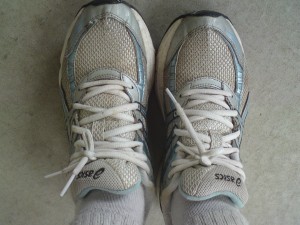This post is by Bamboo Forest.
Have you ever been walking somewhere, when suddenly someone greeted you with a hello—and it made you feel really good?
I think we all have. That experience really underscores how powerful a simple hello can be in raising our spirits. When you say hello to others you’re acknowledging them, and people love being acknowledged.
With every person you pass and don’t say hello to, you’re potentially missing out on a great opportunity to make a difference in the world.
I make a point to say hello to people often—and not just to people I cross paths with in the street. For example, if I’m entering the subway and I see a maintenance worker cleaning, I’ll often stop and say, “Hi.” They probably don’t get said hello to that often by commuters, so I’m sure it brightens their day.
Looking for opportunities to say hello to people who probably don’t receive a greeting often is a great way to help them feel acknowledged and brighten their spirits.
The benefits are far reaching
All of us have challenging days where nothing seems to go right. These days can really put a damper on our spirit.
When you say hello to a stranger, there’s always a chance they’re having one of those days. A simple hello will not solve their problems, but it can certainly brighten their spirits which will be a positive for them in an otherwise challenging day.
And then, when those you’ve greeted continue with their day, they’re more likely to take with them a happier disposition. Your hello hasn’t only helped the one you’ve said hello to, but all people they’ll continue to interact with throughout their day.
You don’t have to say hello to everyone
Even though I make a point of saying “Hi” to strangers often, I don’t do it every time—and you shouldn’t expect yourself to! Sometimes you’re in a hurry, or sometimes someone else is in a hurry, or you simply intuit that they’d rather not be greeted. Other times it’s wiser for safety reasons not to draw attention to yourself.
But many times it’s a great thing to do for your fellow human being. Even if you just said hello 15% of the time you pass someone on the street, that would be a great benefit to many people. Through this simple action, you’d be improving the world.
Don’t underestimate the power a hello can have on your fellow human being. It costs you nothing, yet it brightens the spirits of others—and yourself. That’s quite the deal.
Bamboo Forest created an online timer that helps you get more work done with greater focus, commitment and ease. He’s also an email life coach, helping people work on something in their lives over the course of a month.










Recent Comments